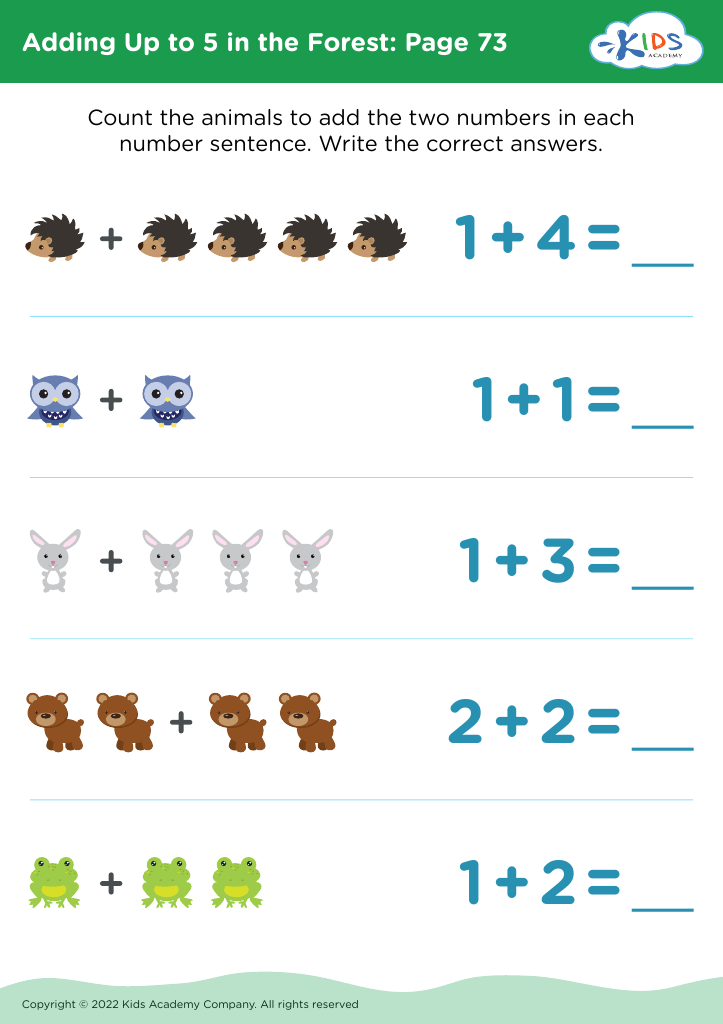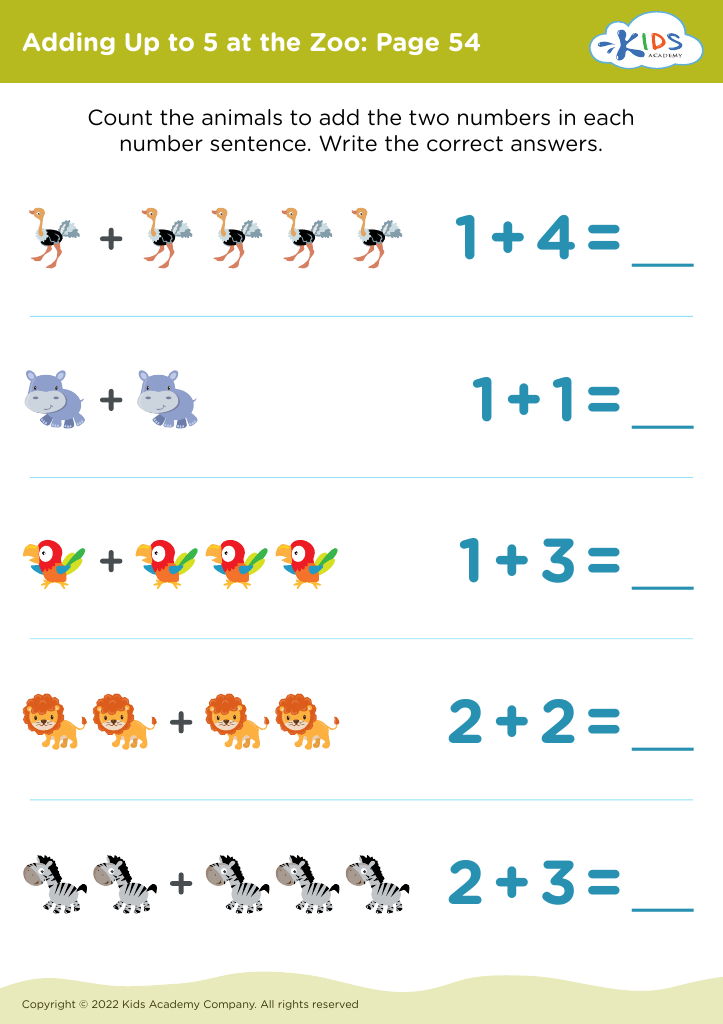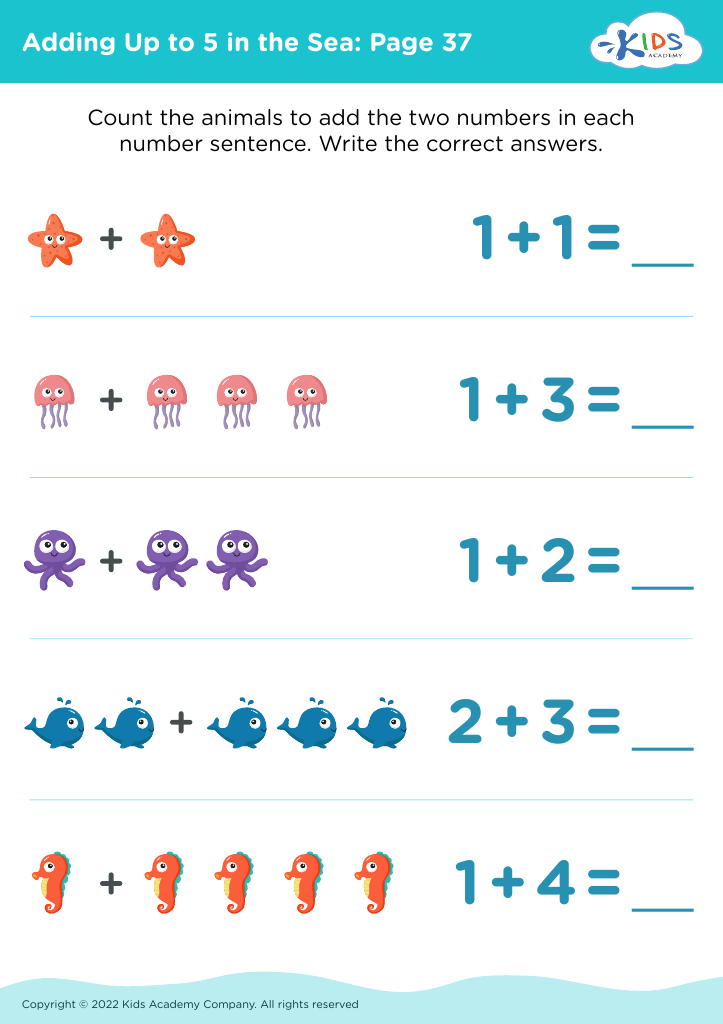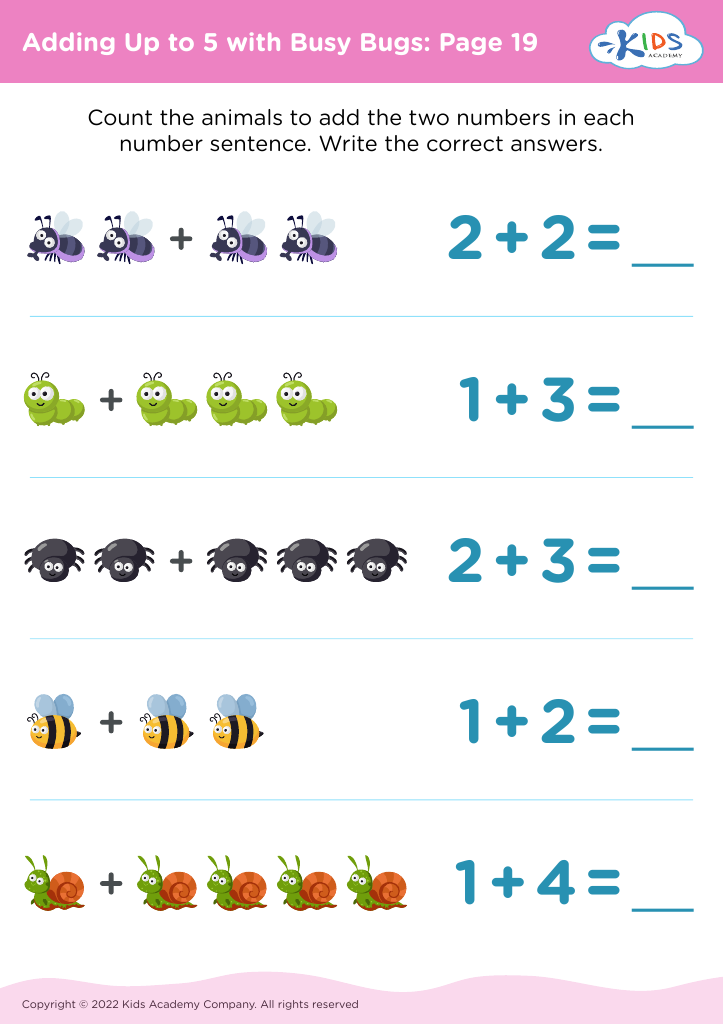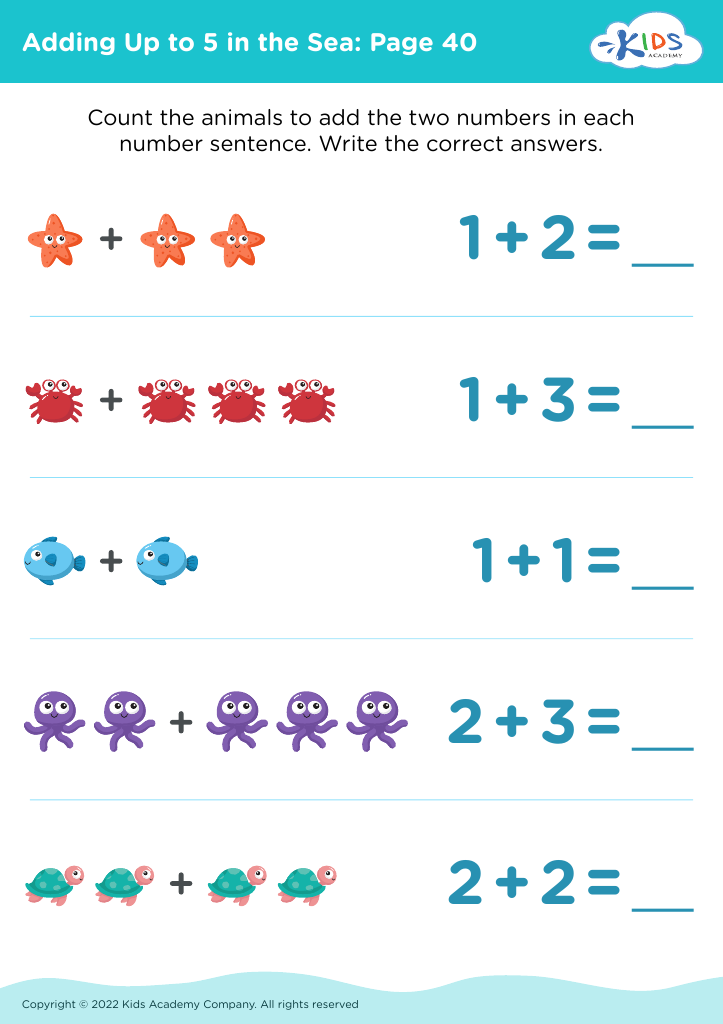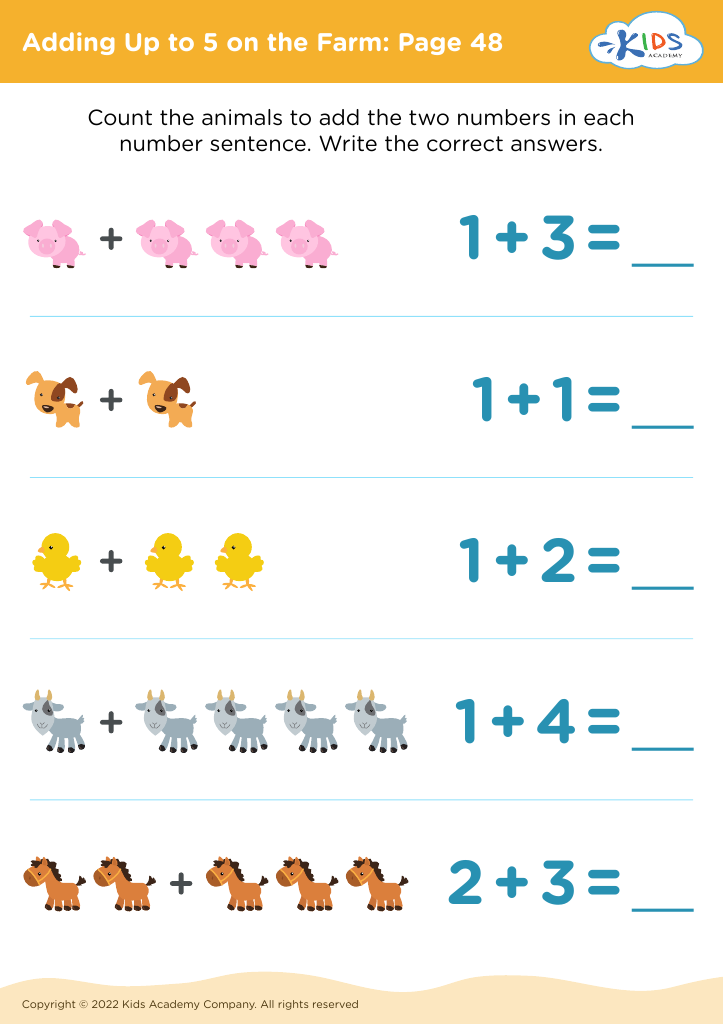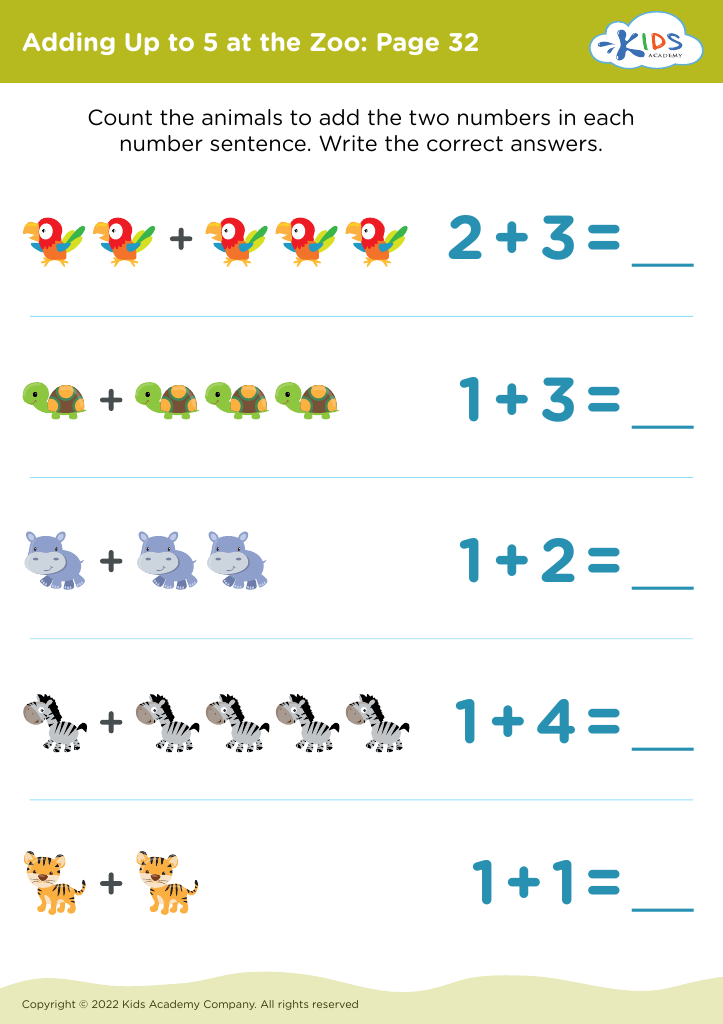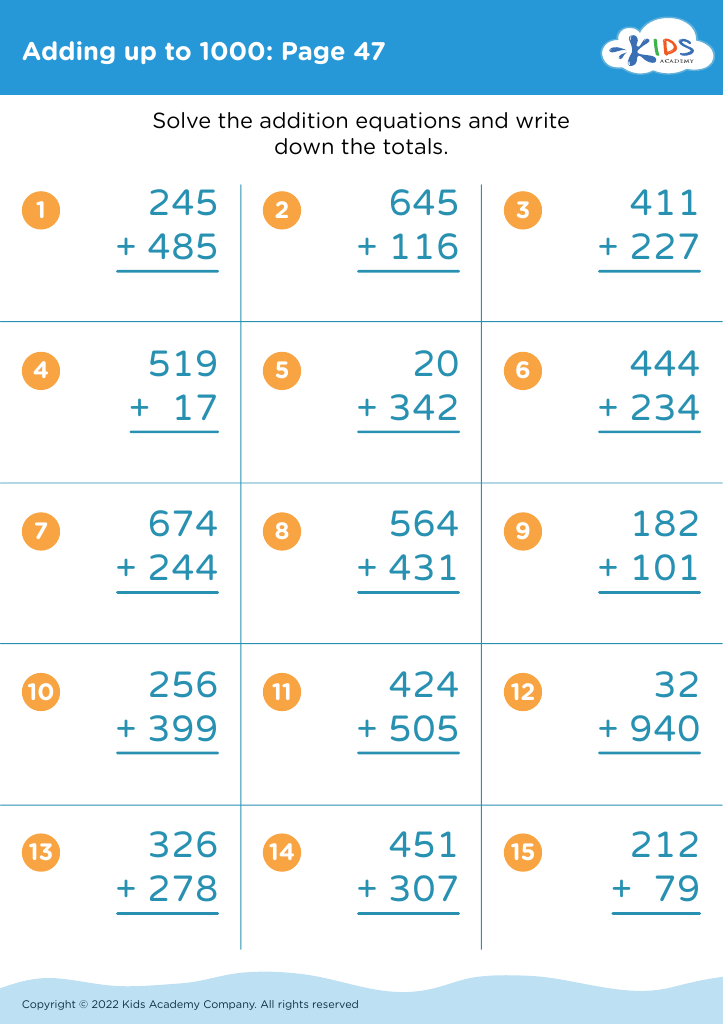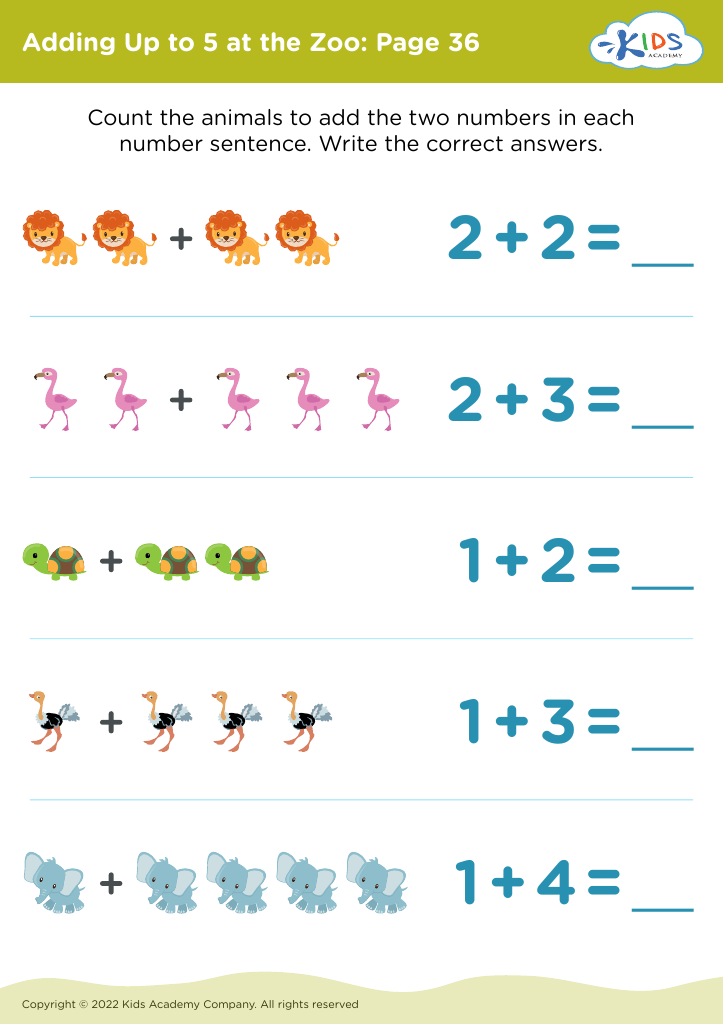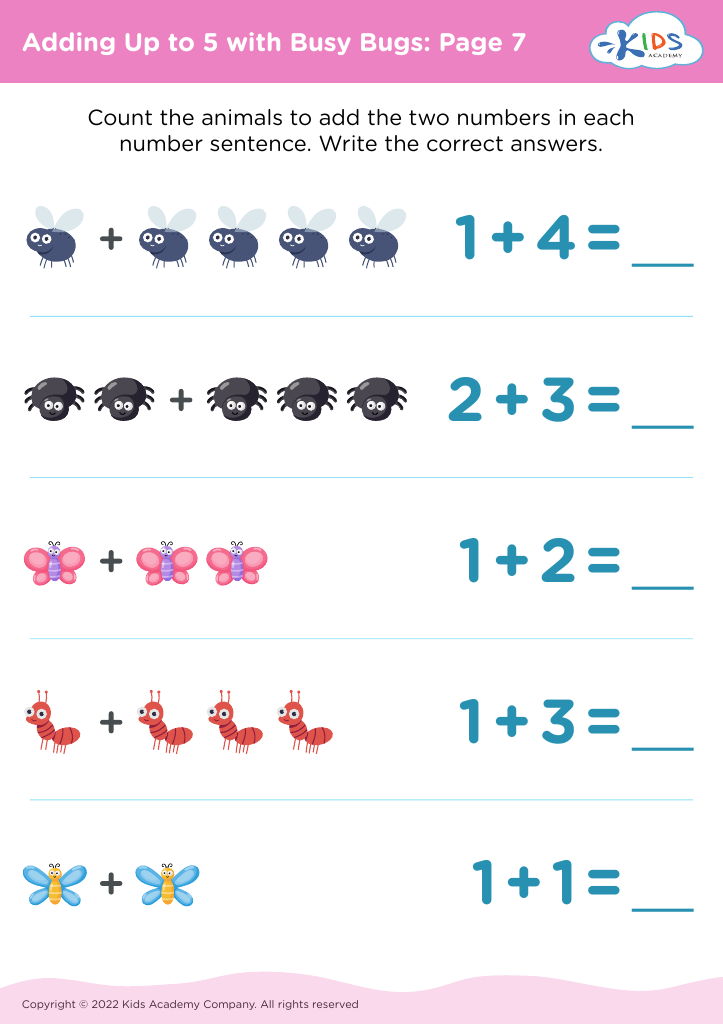Number Recognition Addition Worksheets for Ages 4-9
509 filtered results
-
From - To
Boost your child's math skills with our "Number Recognition Addition Worksheets for Ages 4-9." Tailored to enhance number recognition and addition proficiency, these engaging worksheets blend fun activities with educational exercises to support foundational math learning. Designed for young learners, each worksheet provides simple, yet effective challenges to develop counting, recognize numbers, and perform basic addition. Perfect for parents and teachers seeking quality resources, our worksheets make learning addition enjoyable and interactive. Explore a variety of themed printables that captivate children's interest and set the stage for future math success. Download now to start the math adventure!
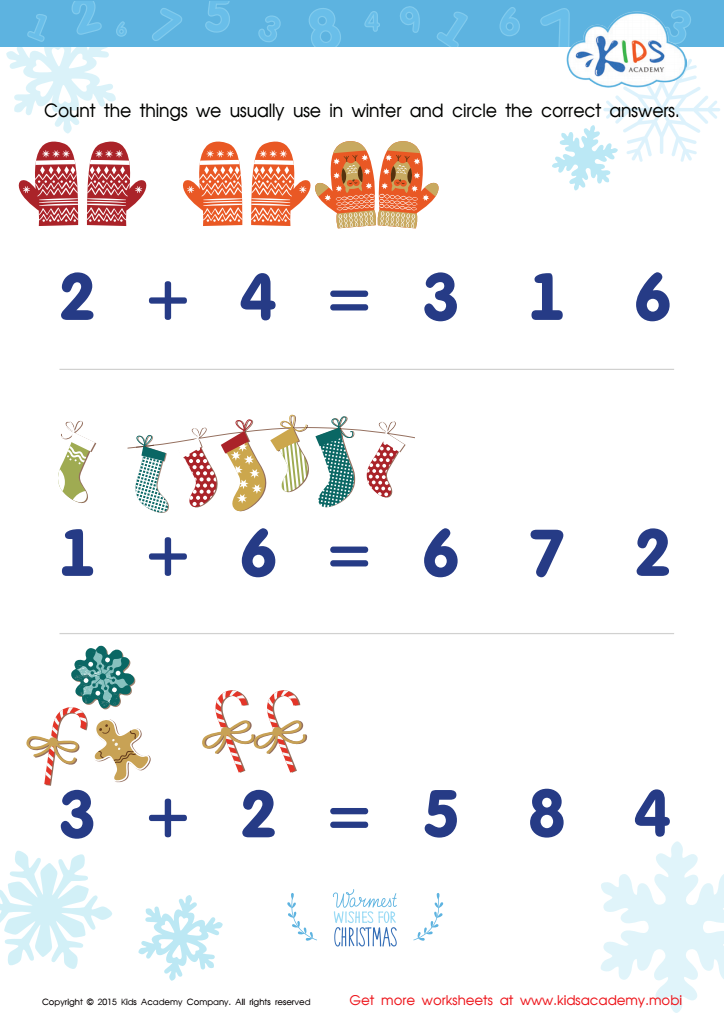

Count Winter Things Worksheet
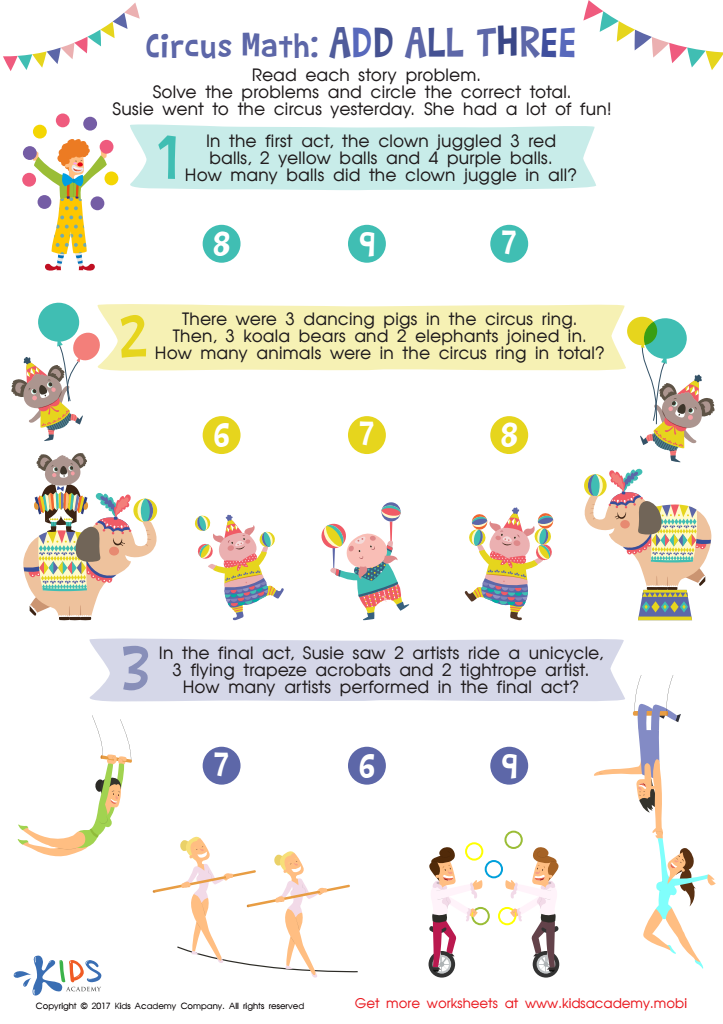

Circus Math Printable
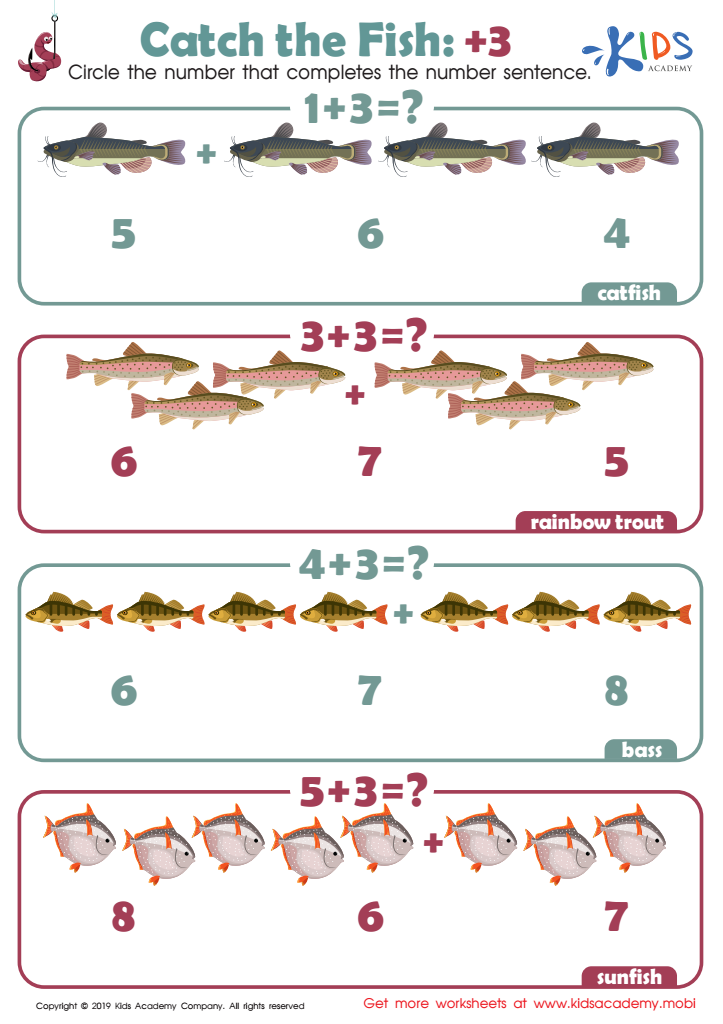

Catch the Fish: +3 Worksheet
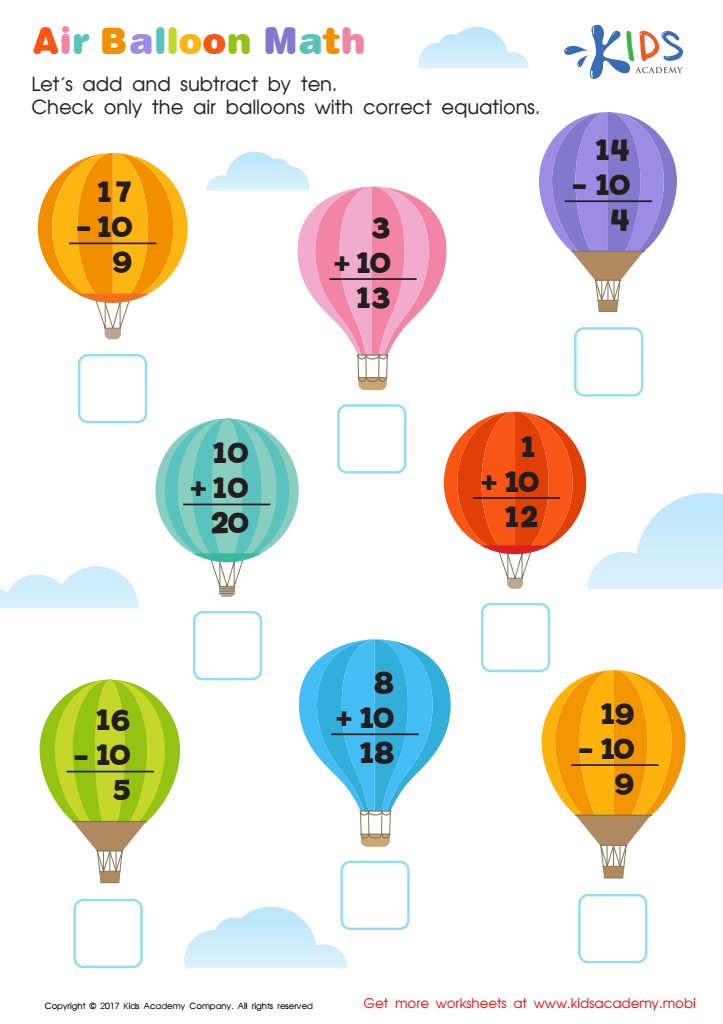

Air Balloon Math Worksheet
Number recognition and addition are foundational skills in early childhood education, particularly crucial for children aged 4-9. Here’s why parents and teachers should give them significant attention.
Firstly, number recognition is the ability to identify and name numbers. It’s the cornerstone of mathematics, enabling children to understand and work with numbers. Without this skill, kids can struggle with basic arithmetic and more complex math problems introduced later.
In parallel, addition helps children comprehend the basic concept of combining quantities and understanding amounts. Mastering addition at an early age improves cognitive development and numeracy skills, facilitating problem-solving and logical thinking.
For ages 4-9, embedding these skills early on ensures smooth progression to more advanced mathematical concepts, like subtraction, multiplication, and even algebra. Children with strong foundational skills enjoy math more, as they feel more competent and less frustrated.
Moreover, research indicates that early math skills are strong predictors of later academic success. Kids proficient in number recognition and basic addition tend to perform better not only in math but also in literacy and other areas, boosting overall educational outcomes.
Therefore, giving attention to these skills is investing in a child's future. Such early interventions lay a robust foundation for lifelong learning and cognitive development, ensuring children not only succeed academically but also in everyday problem-solving situations.




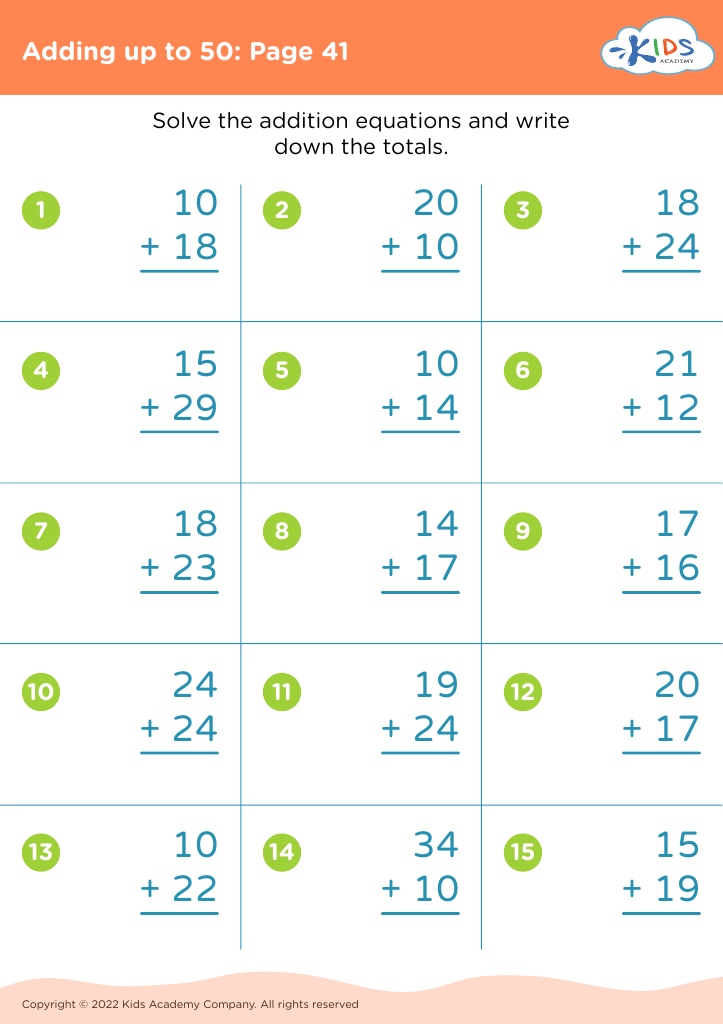
 Assign to My Students
Assign to My Students

